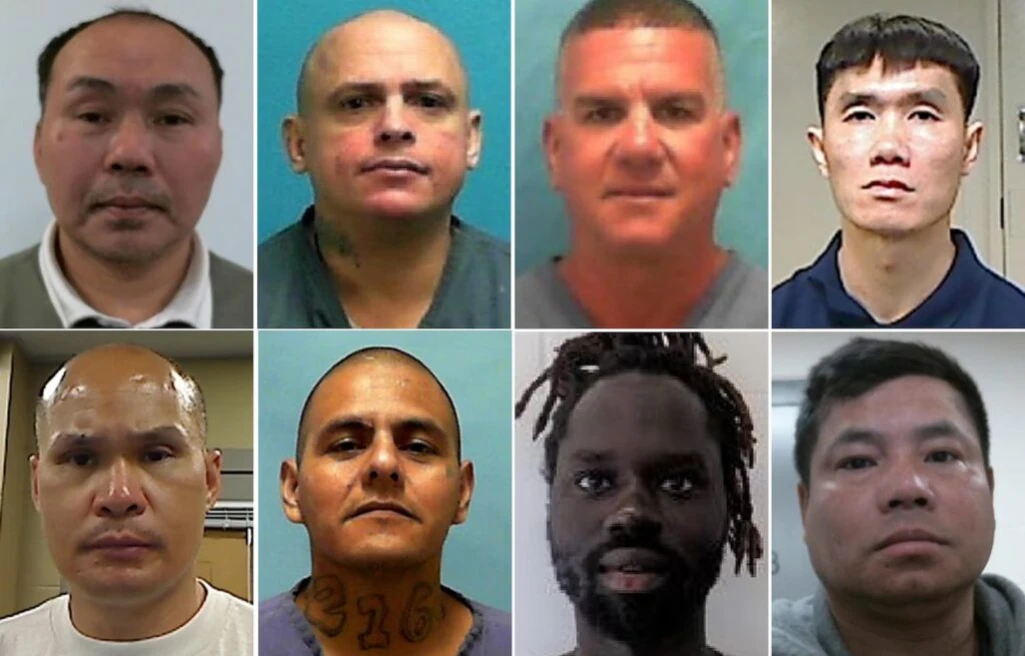
The government of South Sudan has explained why it agreed to accept a group of migrants deported from the United States, most of whom are not South Sudanese citizens.
The government said the decision is to promote
humanitarian cooperation, fulfill international responsibilities, and maintain
positive diplomatic relations with Washington.
According to a statement from the Ministry of Foreign
Affairs and International Cooperation, eight individuals including one South Sudanese citizen arrived at Juba International Airport on July 5, 2025.
The other seven deportees are from other countries, including Cuba, Mexico,
Laos, Myanmar, and Vietnam.
Amb. Apuk Ayuel Mayen, spokesperson for the Foreign
Ministry, confirmed that the arrivals followed standard procedures carried out
by the U.S. government.
“The Government of the Republic of South Sudan received
these individuals through the appropriate national institutions. They are
currently in Juba under the care of the relevant authorities,” Mayen confirmed.
The deportees, convicted of serious crimes such as murder, sexual assault, and robbery had either completed or were close to finishing their prison sentences in the United States.
Their arrival to Juba followed a U.S. Supreme Court ruling in late June that allowed deportations to countries that were previously seen as unsafe or unwilling to accept returnees.
The status of the deportees remained unclear. The South Sudanese
government was expected to give more details, but it provided not much information in a statement confirming deportees' arrival.
However, the ministry said that the relevant authorities are
screening these deportees to ensure their safety and well-being, in accordance with
the South Sudanese laws and international standards.
The deportation of migrants, most of whom are not South
Sudanese and have been convicted of serious crimes, follows a diplomatic
standoff between South Sudan and the United States earlier this year.
In April, South Sudan initially refused to receive a
deportee identified by U.S. immigration authorities as a South Sudanese
national, causing tensions between the two countries.
In response, Washington placed visa restrictions on South
Sudanese officials, claiming Juba violated international obligations. South
Sudan argued that the individual had no legitimate ties to the country.
Juba has now said it is accepting the deportees, including
those without direct citizenship ties as part of its effort to maintain
relations with the United States on a range of matters, including political,
economic, investment, security, humanitarian, and consular-related issues,
among others
“This development comes in the context of ongoing bilateral
engagement between the Republic of South Sudan and the United States of America,”
Mayen revealed.
“This engagement aims
at normalizing relations, deepening bilateral cooperation and addressing issues
of mutual concern and interest."
The government cited its sovereign responsibilities and
long-standing cooperation with the U.S., particularly on post-independence
support and humanitarian aid.
“In the spirit of mutual respect, support, understanding and
solidarity, South Sudan responded positively to a request from the U.S.
authorities as a gesture of goodwill, humanitarian cooperation, and commitment
to mutual interests,” the statement added.
However, the decision brought about mixed reactions among
South Sudanese. Human rights advocates and civil society leaders have expressed
concerns about South Sudan becoming a destination for migrants without clear
legal status or personal connections to the country.
Edmund Yakani, Executive Director of the Community
Empowerment for Progress Organization (CEPO), cautioned that South Sudan
"is not a dumping ground for criminals."
Internationally, deportation has faced legal and ethical
scrutiny. The U.S. Supreme Court recently ruled that the federal government can
deport migrants to third countries, including South Sudan, even if those
individuals lack citizenship ties.
Civil liberties groups in the U.S. have criticized this decision, arguing it could place vulnerable individuals in serious danger, especially in conflict-affected areas like South Sudan.
Despite these concerns, the South Sudanese government
reiterated its commitment to maintaining its territorial sovereignty while
meeting its international obligations. It stated that while its primary duty is
to its own people, it would continue to pursue partnerships that promote peace,
mutual respect, and global cooperation.
Currently, the deportees remain under government supervision in Juba, with no clear timeline for their future status or resettlement.